|
Post Mortem on the Year Just Girl Gone
A brief survey, and almost certainly an under-estimate, of Shots activity in 2019 suggests that this esteemed organ carried 277 blog posts, 228 book reviews and 28 features during the year. In addition, the twelve Getting Away With Murder columns mentioned 258 authors and their crime fiction.
Which I think is not a bad showing, given that by my crude calculations, there were at least 522 brand new crime novels published in the UK in 2019; which is one every 16 hours 42 minutes. {I do not count self-published books or those which only appear as eBooks, which are probably legion, and it must be said there are publishers who are very adept at hiding lights under bushels, so I will have missed a few.}
By my arithmetic, around 45% of those 522 new titles were written by women, a significant increase as historically, females have numbered 33-35% of crime writers, which is possibly explained by the current boom in ‘domestic noir’ although I am old enough to remember when Ruth Rendell, Margaret Yorke and others ruled that particular roost.
During the year we sadly lost spy-fi supremo Anthony Price, Sicilian legend Andrea Camilleri and that doyen of crime fiction reviewers, Marcel Berlins, and, on the last day of the year, M.C. Beaton. All will be sorely missed.
As will illustrator Tom Adams, who died aged 93, just before Christmas. Tom is famed for his gothic Fontana paperback covers for Agatha Christie novels but he also designed a set of jackets for Eric Ambler thrillers in the mid-60s which are now incredibly rare and rather valuable.

Pick of Next Year
Dare I say that I have already chosen one of my picks of 2020, even though the book in question is not published in the UK, by Quercus, until April?
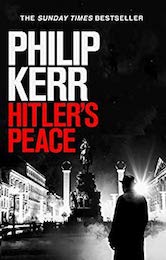
For reasons which I do not understand – and never had the chance to ask Philip Kerr before his untimely death – his stand-alone thriller Hitler’s Peace was published in the USA in 2005, but never in this country. I am grateful to a reader in Canada for the copy of the American paperback which I read with great pleasure, but was mystified to discover that there was also a German edition available way before a British one.
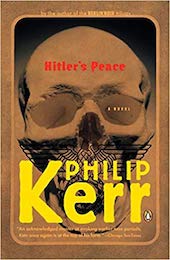 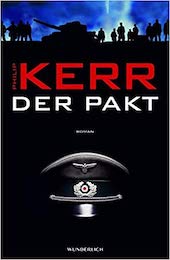
Hitler’s Peace is a tour-de-force of a WWII conspiracy thriller centred on the famous ‘Big Three’ Tehran conference in 1943 – or should that be ‘Big Four’? (Spoiler alert!) It has an all-star cast, including Churchill, Roosevelt, Stalin, Beria, Himmler, Canaris, Walter Schellenberg and, of course, Kim Philby, without whom no conspiracy thriller is complete, although the central character, it emerges, is a seemingly mild-mannered American philosopher with a colourful past who finds himself an advisor to FDR. He may be a spy. He may be a double agent. He may be a fall guy. One thing is for sure, he’s about as much a mild-mannered philosophy academic as Indiana Jones is a museum guide.
This is a long and complex novel, constantly switching points of view and just when you think Kerr has twisted his plot into a Gordian knot, after 350 pages he springs the biggest surprise of all – and it really is a stonker!
Any reader of Kerr’s superb Bernie Gunther series will appreciate much of the cynicism and wise-cracking dialogue and recognise the staggering amount of research which the author puts into his fiction. Detail at the level Kerr provides, seemingly without effort, could be a dangerous plaything in lesser hands. Did I know that the Focke Wulf FW 200 Condor’s engines were made by BMW? (Actually I did.) Does such detail add anything to the plot? (No.) Does it distract the reader? Well, not this one because I trust Philip Kerr to get things right and so accept without question the other, more important, historical references.
Hitler’s Peace is a thriller with a fantastical plot-line and may well find a place in the “What If?” school of historical fiction, Definitely one for readers who prefer their history well shaken rather than stirred.
On the Watch List
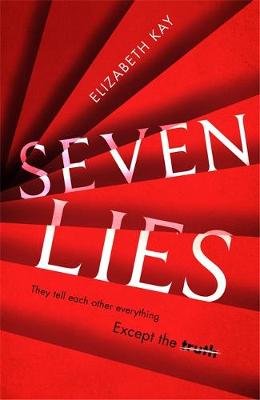 Already one of the most talked about debuts of 2020, for a number of reasons, is Seven Lies by Elizabeth Kay, to be published by Sphere in April. There has been a ‘buzz’, as the young people used to say, around this book, at least in publishing circles ever since it was said to have attracted the famous ‘six-figure advance’ (I got one of those once: £18…19s…11d) and rights were rapidly sold to 25 territories. Already one of the most talked about debuts of 2020, for a number of reasons, is Seven Lies by Elizabeth Kay, to be published by Sphere in April. There has been a ‘buzz’, as the young people used to say, around this book, at least in publishing circles ever since it was said to have attracted the famous ‘six-figure advance’ (I got one of those once: £18…19s…11d) and rights were rapidly sold to 25 territories.
Yet the juiciest part of the gossip surrounding the novel was the fact that ‘Elizabeth Kay’ was a pen-name used by a commissioning editor at rival publisher Transworld.
Now it is not unusual for editors to fill in their many spare hours writing fiction, nor is it unusual for them to place their novels with rival publishers. My first editor, at the legendary Collins Crime Club, Elizabeth Walter, wrote ghost stories and historical romances (under her own name) but invariably submitted them to a rival publisher. I still treasure a signed copy of her last novel, from 1990, Homeward Bound, which was published by Headline.

For legal reasons I never saw Holly Watt’s debut To The Lions last year, though I heard many good things about it, especially after it won the CWA Ian Fleming Steel Dagger, so I am looking forward to her second thriller The Dead Line, which will appear from Raven Books.
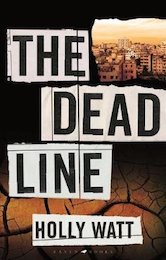
As Holly Watt is herself an investigative journalist, who has reported from Libya, Afghanistan, Bangladesh and, even more dangerous, London Fashion Week, it makes perfect sense that her lead character, Casey Benedict, should also be a globe-trotting journalist.
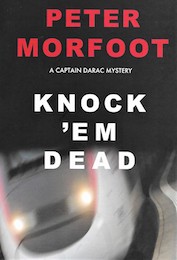 April is shaping up to be a crowded month for good reading with a fourth Captain Darac mystery from Peter Morfoot and his new publisher, Galileo, Knock ’Em Dead. April is shaping up to be a crowded month for good reading with a fourth Captain Darac mystery from Peter Morfoot and his new publisher, Galileo, Knock ’Em Dead.
I have said publicly, and will say again, that jazz-loving Captain Paul Darac of the Brigade Criminelle of Nice is one of the best contemporary foreign detectives created by a British author since Michael Dibdin’s Aurelio Zen. Previous Darac adventures have provided complex plotting, wonderfully delicately shaded (and shady) characters operating in the technicolour atmosphere of a wonderfully described French Riviera to a super cool soundtrack. Knock ’Em Dead even provides a Darac playlist but the non-musical reader will have much to enjoy taking in the sights, sounds and smells of a magical, though often murderous, part of the world.
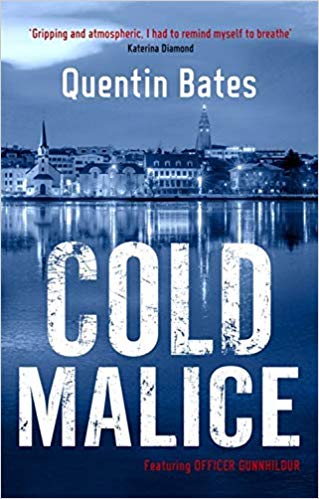 I have been waiting since last summer to enjoy a new slice of Icelandic noir (is there any other shade of Icelandic fiction?) by Quentin Bates, that well-known supplier of out-of-print thrillers to the old and infirm. In May, his Cold Malice is published by Constable and though I know absolutely nothing about the plot, I am convinced it will be brilliant. I have been waiting since last summer to enjoy a new slice of Icelandic noir (is there any other shade of Icelandic fiction?) by Quentin Bates, that well-known supplier of out-of-print thrillers to the old and infirm. In May, his Cold Malice is published by Constable and though I know absolutely nothing about the plot, I am convinced it will be brilliant.
(Any reader confused by this should refer back to Column 151 of June 2019. Previous columns can be easily accessed – you didn’t know this? – by clicking on the purple Getting Away with Murder tag above the masthead of each column. What did you think that was?)
And speaking of Iceland, which I often do these days, I have to admit I was unaware of the delightful custom started there during WWII of Jólabókaflód, which roughly translates as ‘Christmas book flood’ and is the charming tradition of giving books for Christmas.
To introduce me to this wonderful idea, and on Christmas Eve too, those charming people at Penguin/Michael Joseph sent me an advance copy of Ragnar Jónasson’s new thriller The Mist which they will publish in April.

I have had the pleasure of meeting Ragnar at CrimeFest in Bristol, where he is a regular attendee and, as it happens, will be present at CrimeFest 2020, which will be held slightly later than usual, between 4th-7thJune.
The Marseille Connection
When I set out to write a spy story featuring the ‘continuing’ adventures of Margery Allingham’s Golden Age detective Albert Campion, I decided to use the opportunity to fill in his ‘missing years’ and answer the question What did Campion do in the war?As he would have been too old to be a front-line combatant, Mr Campion was more suited to undercover work and so, in Mr Campion’s War, I sent him to Marseille in 1942 on the eve of the German take-over of Vichy France.
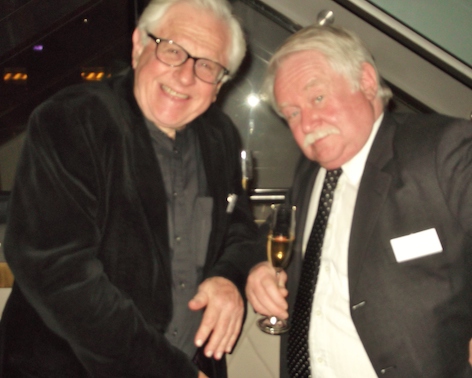
To help with my research, I turned to an old friend, Marcel Berlins, the long-serving crime fiction critic of The Times, who sadly died last year. Not only did Marcel have an immediate grasp of what I was trying to do in my book but generously shared his personal family history, as he was born in Marseille in 1941, where his father, a hotelier, became a person of some interest to the Vichy police and then the Gestapo.
I recently discovered a novel, Seven Thunders, set in the seedy part of old Marseille I was attempting to portray, which I had never heard of, although I was well aware of the author.
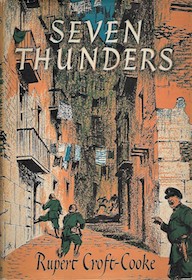
Rupert Croft-Cooke (1903-1979) was a journalist, scriptwriter, playwright and prolific novelist who is best known in crime writing circles under the pen-name Leo Bruce for two series of mysteries featuring gentleman detective Carolus Deene and the rather plodding Sergeant Beef. In the first wonderfully cheeky ‘Beef’ book, Case for Three Detectives, which appeared in 1936, Beef is confronted by a locked-room murder committed during a country house party, though his real problem is dealing with the three rather famous (or rather thinly disguised) detectives of the Golden Age who try to muscle in on the case.
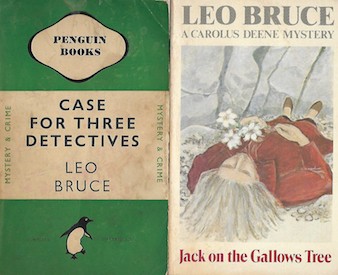
Croft-Cooke travelled widely before the war then served in the British army in Africa and India 1940-46. His life back in England was blighted in 1953 when he was the victim (as was Alan Turing) of a Home Office clampdown on homosexuals. On the basis of what appeared, even at the time, to be rather dubious testimony, Croft-Cooke was arrested and sentenced to six months in prison. Whilst in Wormwood Scrubs, he wrote two novels, one of which was Seven Thunders, which published in 1956 and filmed in 1957.
Although probably not intended as a thriller, in parts the novel certainly reads like one as it describes the dangers facing the disparate population who inhabited the slum that was the old port quarter of Marseille, which was spectacularly blown up by the Nazis in January 1943. The cramped, labyrinthine streets of the old port’s tenements provide a haven of sorts for a colourful cast including a pair of escaped British POWs, a family of Spanish smugglers, a former Nazi brownshirt leader still on Hitler’s personal hit list, an English woman with a Senegalese husband, numerous petty crooks and a seductive ‘street-rat’ waif. And the one man who might be able to provide an escape route could just be a serial killer.

There are murders off-stage, a smattering of violence and one tragic, but in a way inevitable, death as the intertwined stories of the inhabitants stutter and stumble to a climax when the old port area is dynamited by German troops. (It was said to be either a Nazi removal of undesirables or a piece of rather drastic town planning in co-operation with corrupt city officials.) Still, it is an interesting book even if I cannot explain the title, which comes from the Book of Revelations, and I would have loved the chance to discuss it with Marcel.
|
|
All Our Yesterdays (Well, mine anyway)
Twenty-five years ago, in 1995, my first Crime Guide column in the Daily Telegraph for the new year featured some familiar names, a veritable roll call of British crime writing royalty.
Simon Brett lead the way with Singled Out although this was not Simon Brett the light comedian, but a writer showing his darker side as he swapped laughs for chills in a very creepy family saga. Abandoning his best known character Inspector Ghote – the Bombay Maigret – H.R.F. Keating gave us The Good Detective with a central moral puzzle of how far to trust a terrorist ‘confession’. Jonathan Gash, however, stuck to his golden guns and with The Grace in Older Women had Lovejoy ‘back on top form’ on his home turf around Colchester where there was once a thriving antiques trade, but thanks to the popularity of the Lovejoy books, all the antiques were bought up by foreign buyers and the dealers retired to live off their profits; probably in Spain.

The Brits did not have it all their own way, though. I liked Miami, It’s Murderby former crime reporter Edna Buchanan and was particularly impressed with North of Montana by April Smith, an FBI investigation fronted by agent Ana Grey. I regret very much that I never saw another Ana Grey novel although I believe April Smith wrote three more over the following sixteen years, but none were published in the UK.
I have to admit that I was lukewarm about Born Guilty, by my old and distinguished friend Reginald Hill (though he never held it against me), which featured his ‘second-string’ detective character Joe Sixsmith, a middle-aged, black private eye based in Luton. Yes, Luton. The mean streets of mid-Yorkshire, as patrolled by Dalziel and Pascoe, were Reg’s prime stomping ground, and his bread-and-butter, but he always preferred to have a second string to his bow, including some cracking thrillers under the pen-name Patrick Ruell which are now, disgracefully out of print.
Books of the Month
Missing children, mind-games perpetrated on family members, multiple narrators (few of them reliable), dubious policemen, memory loss, control-freakery; what other ingredients could be added to the contemporary novel of ‘psychological suspense’? A hint of the supernatural or other-worldliness? Doppelgängers? The Dark Web? Modern-day slavery gangs? County Lines drug-running? I am sure there are lots of other things, though most of these can be found in one or other of this month’s new releases, both with ‘other’ (as you might have guessed) in the title.
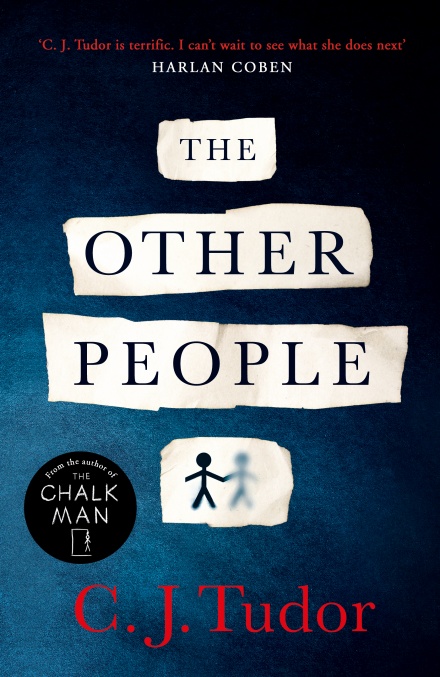
The Other People by C. J. Tudor (Michael Joseph) cements her reputation as a writer with the skill to incorporate a supernatural atmosphere into a seemingly ‘ordinary’ set of crimes (if murder, kidnapping and numerous other misdemeanours can be said to be ordinary) without going the full Dennis Wheatley Black Mass route. Her new novel, told from multiple viewpoints, opens with a nightmare scenario for any parent when a father, driving along a motorway, sees his young daughter in the back of a strange car, which he follows but then loses sight of. He stops and phones home only to be told by the police that his wife and daughter have been murdered by an intruder into their home.
Our traumatised protagonist then spends the next three years driving the M1 at night trying to catch sight of the kidnapper’s car which contained his daughter alive, even though she was supposed to be dead. If this sounds dark, don’t worry, it gets darker – literally – as the workings of ‘the other people’ are revealed, along with information the author cunningly conceals for as long as she can, although to be fair, she does plant some clever clues along the way. As the various narratives twist together, a large amount of suspension of belief is required, but most will give it willingly because of the genuinely creepy atmosphere Caroline Tudor evokes and should you need a reason to avoid motorway service stations, this will give you one.
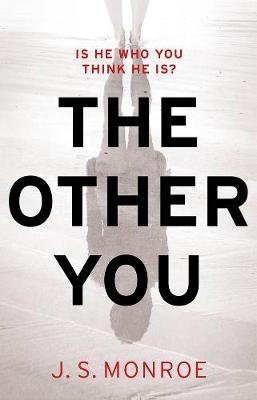
J.S. Monroe (who has written some tasty spy novels under the name Jon Stock) has recently become something of a specialist in memory-loss and cognitive dysfunction. In The Other You (Head of Zeus) he adds another specialist subject, facial recognition, to his repertoire as well as some high-tech skulduggery. His central character, Kate, has the gift, almost a superpower, of recognising faces in a crowd, which comes in useful to the police tracking gangs involved in modern-day slavery and drug dealing. But Kate has a serious car accident (accident?) and loses her ability. Taken under the wing of a new partner, who is a rich technology whiz-kid (and therefore suspicious) obsessed with the idea of doppelgängers it becomes clear, though not to her, that she is in danger. Can her former partner, a down-at-heel crime writer now only published in Finland (!), come to her rescue? And who does she actually need rescuing from?
Monroe, like C.J. Tudor, tells his story from different angles and drives the plot at tremendous speed through short, cliff-hanging chapters.
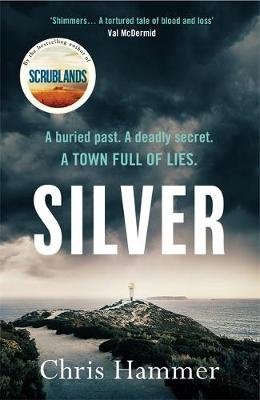
Australian journalist Chris Hammer’s stunning first thriller Scrublands was always going to be a tough act to follow and he has chosen, in Silver, published here by Wildfire, to gives us the extensive, sometimes exhaustive, back-story to the journalist hero from his debut, Martin Scarsden.
Returning to his home town after a long absence, to start a new life, Scarsden discovers the freshly-killed body of a childhood friend almost before he’s had time to take his coat off, let alone greet his partner Mandy, who has clearly(?) witnessed the murder. Although the pace slows considerably after the opening set-up as we learn more – much more, over 600 pages – about Scarsden’s early life in Port Silver and indeed the town itself, Hammer’s writing is clear and fluent,demonstrating his journalistic skill at describing small-town Australia.
Given what is revealed, one can only think that Scarsden’s traumatic experiences as a war reporter in the Middle East were quite relaxing compared to his life at the sunny Australian seaside.
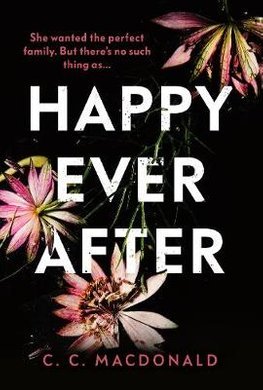
Given the current thirst, at least among commissioning editors, for ‘domestic noir’, I can see the attraction of C. C. MacDonald’s debut Happy Ever After (Harvill Secker) which tells of a young(ish) couple’s attempts to have a second child. Here the domestic tension between Naomi and Charles centres on Naomi’s near obsession with becoming pregnant (she has an ovulation app on her phone) and to prove the point, the narrative is interspersed with page after page of advice on pregnancy as provided by Dr Google. Charles, clearly not keen on regimented sex and disappointments in his business life, is also suffering with his fantasy football team, which has Raheem Stirling playing for Ipswich Town (so clearly this is fiction). Naomi’s frustration climaxes, so to speak, in a sexual encounter in a swimming pool (well not actually in the pool) with a stranger who has helped her park her car – something she seems particularly inept at.
The scene is set for multiple deceptions when Naomi finds she is, at last, pregnant, but the plot moves from domestic noir into stalker thriller mode, though lacking any real sense of menace. The problem is the lack of empathy with, and sympathy for, the central married couple who don’t seem to want, or deserve, to be a happily-ever-after family.
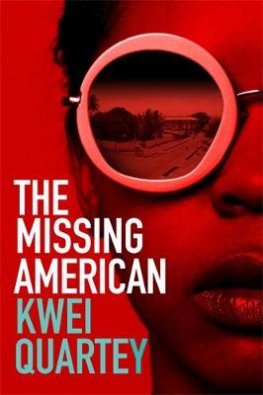 
I have long said, which doesn’t mean it’s not true, that crime writing is a broad church of styles and form and an excellent way of learning about foreign countries and cultures. Travel by the medium of crime fiction should broaden the mind and this month sees the publication of novels which do just that, my only regret being that I had neither the time nor space to do them proper justice.
Kwei Quartey is an American doctor, originally from Ghana, and crime writer, his latest novel The Missing American (Allison & Busby) introducing a new series detective, Emma Djan, a principled young policewoman who moonlights as a private detective to make ends meet. The book opens with a political assassination, then a lovelorn American goes missing, but the most serious crime facing young Emma is the overwhelming corruption prevalent in almost all aspects of modern Ghana. When more senior police colleagues engage in (hilarious) dominatrix sex, you know law and order isn’t what it should be. Above all, The Missing American paints a vivid, technicolour picture of Ghana’s underworld and the poverty which fuels it, whilst allowing some noble and honest characters to rise above it all.
Riku Onda is an established writer in Japan, but I believe that The Aosawa Murders (Bitter Lemon Press) is her first foray into crime fiction; and it has taken 15 years to be translated into English. A mass poisoning of party guests in the 1970s becomes the subject of a best-selling book some ten years later but two decades after that, all the evidence and testimony is reviewed in almost documentary style and the truth emerges. On the one hand, this is a ‘country house’ murder like no other (‘slaughter’ might be a better word) and along the way there are fascinating insights into Japanese life, as well as death.
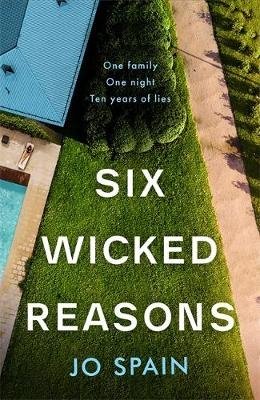
Jo Spain’s last crime novel received rave reviews from, among others, Joan Smith in The Sunday Times, whose opinion as a reviewer as well as a crime writer, I respect. Therefore, I am looking forward to her new thriller Six Wicked Reasons, published this month by Quercus.
With an homage to Agatha Christie in its country house setting, albeit in Ireland, rich family and several cupboards overflowing with skeletons, Six Wicked Reasons opens in 2008 with the disappearance, presumed dead, of an older son who then turns up ten years later. Where has the prodigal son been, why have other family members lied about his fate and is he back for revenge?
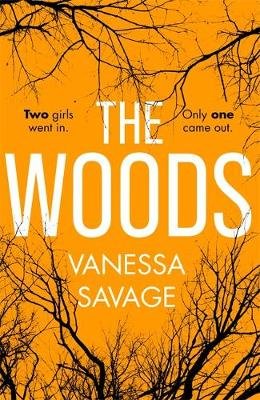
Curiously enough, Vanessa Savage’s new psychological thriller The Woods (Sphere) also begins in 2008 when two girls went into the woods surrounding a very spooky house, but only one returns. Similarly, the action then fast forwards ten years to another crime which awakens lost memories.
And so two crime writers prove that, if for no other reason, as a year 2008 was a bit of a bummer.
Ding Dong Merrily
I was determined to enjoy my last Christmas before Brexit ‘gets done’ (along with the rest of us) and so have made a point of celebrating with some delicious French cheeses, an intriguing 13.5% abv oak-aged Eschenbräu beer from Berlin, and a snootful of fine Italian wine(s).
To add to the festivities, I was presented with a special pack of Christmas Crackers which provided minutes of endless fun.

Best of all – and I am contractually obliged to mention this – was the news that my seventh novel continuing the adventures of Margery Allingham’s famous detective, Mr Campion’s Séance, will be published by Severn House in April.
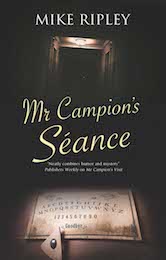
That should be within the expiry date of any Book Tokens left over from Christmas, assuming of course that such things still exist. In the meantime I wish the old year good night and the new one good luck.
Happy New Year,
The Ripster.
|